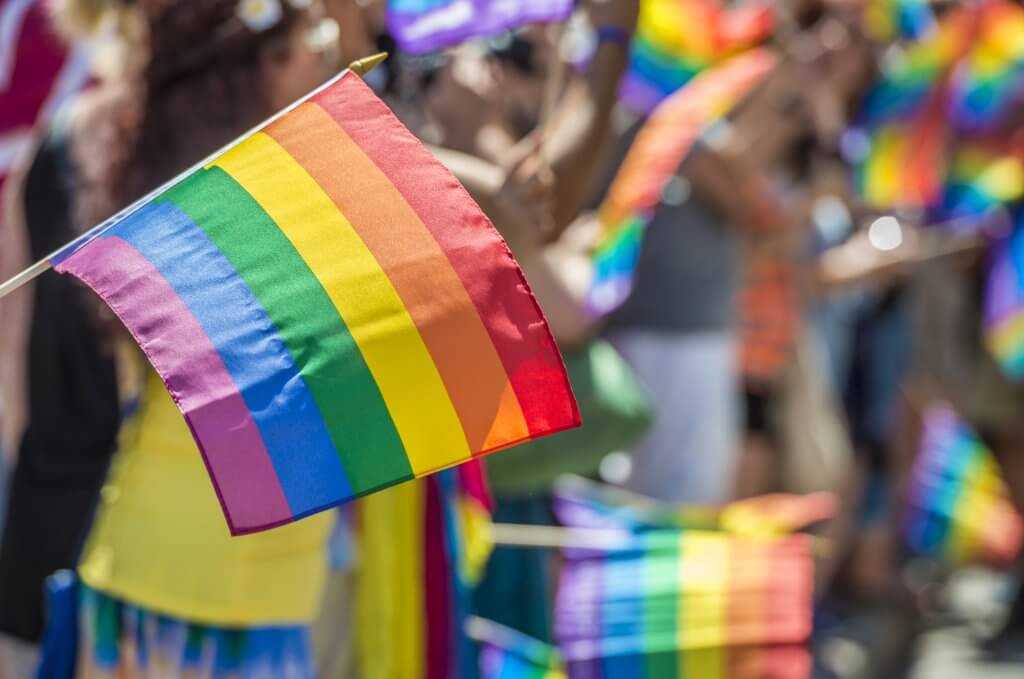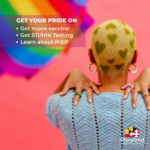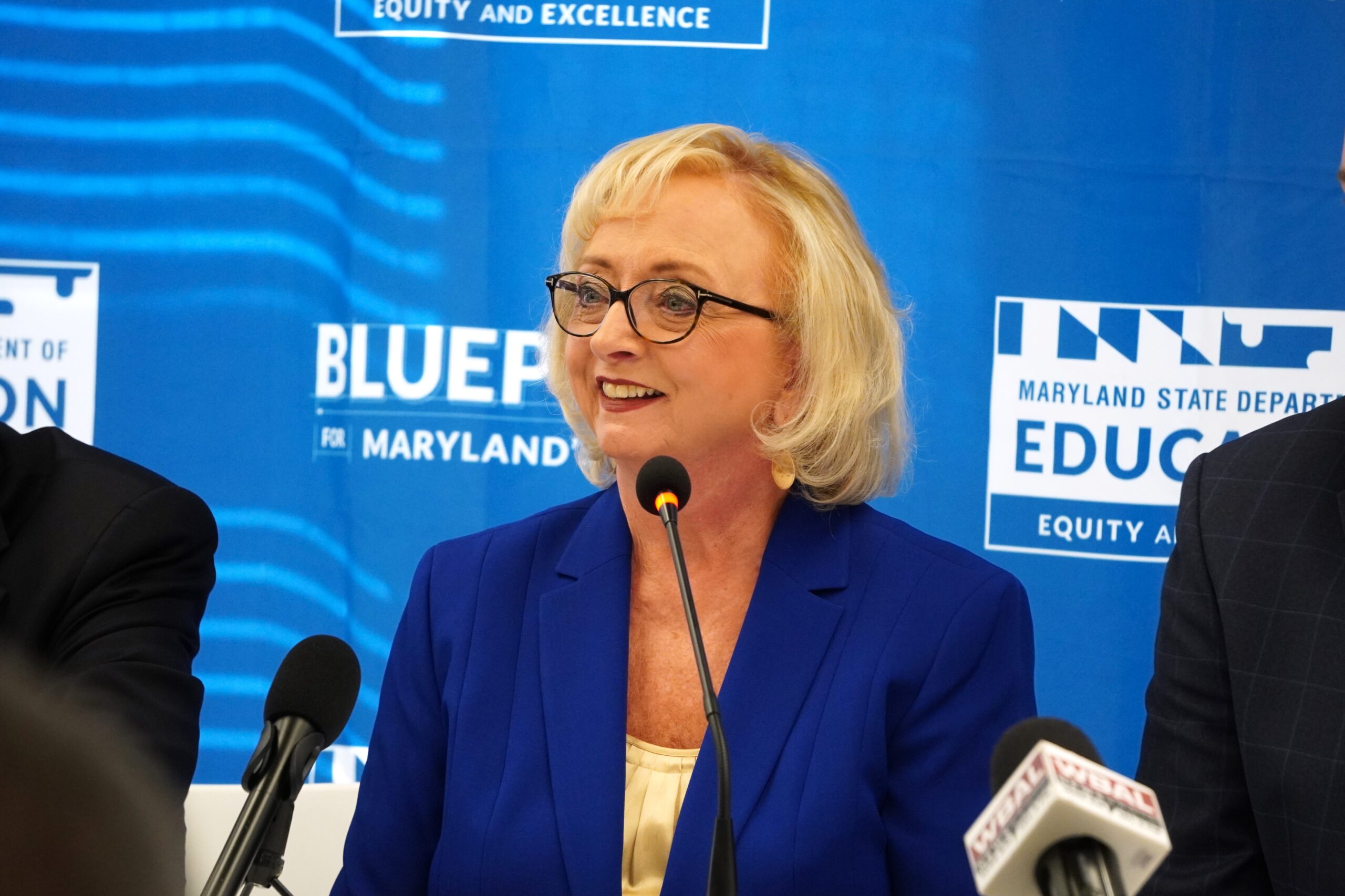As Pride Month begins, state officials urge Marylanders to be mindful of sexual health, STIs

The first day of June kicks off what the LGBTQ+ community recognizes as Pride Month, when members of the community come together to celebrate the progress made for social acceptance of gay and gender diverse people.
LGBTQ+ Marylanders and others will be participating in Pride-related events throughout the month, including parades, block parties and festivals across the state. But state officials want Marylanders to be protected from sexually transmitted infections (STIs) and be mindful of sexual health during the festivities so they are reminding folks through an informational campaign.
On Thursday, Gov. Wes Moore (D) issued a proclamation recognizing Pride Month in Maryland.
“Pride Month celebrates the contributions, resilience, courage, and joy of our LGBTQIA+ family, friends, and neighbors and serves as a powerful reminder of the challenges and discrimination that queer people face in their daily lives, including barriers to healthcare, housing, education, and employment,” the proclamation says.
The proclamation states that “More than 500,000 residents in Maryland identify as lesbian, gay, bisexual, transgender, queer, questioning, intersex, agender, asexual, aromantic, and additional gender and sexual identities.”
And it is expected that many LGBTQ+ Marylanders will attend large gatherings in recognition of Pride Month.
Chase Cook, acting communications director for the state health department, wrote in an email that the department is running an informational campaign called “Get Your Pride On” to encourage “Marylanders to include health checks as part of June’s LGBTQIA+ celebrations.”

The Maryland Department of Health has launched a sexual health information campaign for Pride Month in June. Credit: Maryland Department of Health.
Beginning Thursday, the Department of Health released ads on dating apps to remind LGBTQ+ people to stay updated on their vaccinations and get tested for STIs and other diseases. Additional ads on public transportation will begin next week.
According to the Centers for Disease Control and Prevention, gay, bisexual and other men who have sex with men experienced disproportionate rates of some STIs in 2021, which is the most recent data from the CDC on this matter.
According to the CDC, 36% of primary and secondary syphilis cases were among bisexual and gay men in 2021. In addition, 36% of gonorrhoea cases were among gay, bisexual and other men who had sex with men that year.
Other groups that are particularly at risk of STI transmission include adolescents and adults under 25 years old as well as certain racial and ethnic groups such as Black, Hispanic and Native communities, according to the CDC.
Concerns over mpox
Another emerging concern during Pride Month is a reappearance of mpox cases, formerly known as Monkeypox, across the United States.
Federal health officials begin alerting the public to the emerging public health concern in May 2022. Mpox is a rare but potentially deadly disease which can cause painful, itchy rashes and flu-like symptoms, according to the CDC.
This past May, a cluster of mpox cases were identified in Chicago, according to officials from the CDC.
“Without renewed prevention efforts, especially vaccination, we are at risk for a resurgence of mpox,” said Dr. Demetre Daskalakis during a press briefing on May 18. He serves as the director of the Division of HIV/AIDS Prevention in the National Center for HIV/AIDS at the CDC.
Daskalakis continued: “This is especially a concern as we approach summer with planned gatherings that may have high potential for skin-to-skin contact or that are associated with increased sexual activity. Most new cases are in gay, bisexual, and other men who have sex with men, and transgender and non-binary people. A disproportionate number of cases have been among Black and Hispanic or Latino men.”
CDC notes that while mpox can spread through sexual encounters, the virus can spread through other means including non-sexual exposures.
Cook, with the Maryland Department of Health, noted that mpox information will be a part of the state’s sexual health messaging during June.
According to the state Department of Health’s dashboard on mpox cases, there have been only two cases since May 1, 2023, based on data from May 30. Since last year, there have been 748 total positive cases in Maryland. Of that number, 709 were men.
The dashboard notes that nearly 10,000 Marylanders have been vaccinated against mpox. The CDC notes that transmission can occur even among persons who are vaccinated, but that the vaccine decreases the likelihood of severe illness from the disease.
Drug abuse and mental health
Del. Ashanti Martinez (D–Prince George’s) is gay. He noted that health concerns within the LGBTQ+ community do not end with sexual health, and include other issues involving drug abuse, mental health and access to care in general.
“We, as a state, need to do everything that we can do to give people from the LGBTQ community access to health care – period,” he said.

Del. Ashanti Martinez (D-Prince George’s). Photo by Bryan P. Sears.
Martinez said that within the LGBTQ+ community, the issues of mental health and substance abuse “kind of hold hands.”
“The LGBTQ community,…often times because of the rhetoric that we are seeing across the country, have mental health challenges,” Martinez said.
Such stresses then may lead people to self-medicate through substance use and abuse.
“A lot of times we see people self-medicate. We see people use substances to numb or get through what daily life is like for an LGBTQ person.”
While the Moore-Miller administration attempts to support LGBTQ+ residents through the Pride Month proclamation and approving LGBTQ+ focused legislation, other states are doubling down on anti-LGBTQ policies, particularly homing in on policies that affect transgender people.
Legislation that impact the LGBTQ+ community in other states include severely limiting access to gender affirming care for transgender minors and some adults and prohibitions on drag shows.




 Creative Commons Attribution
Creative Commons Attribution